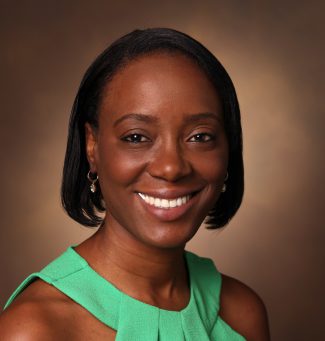Black women diagnosed with breast cancer are significantly less likely to receive BRCA genetic testing than Hispanic or non-Hispanic white women—unless they have access to a board-certified or credentialed genetics health professional (GHP). Sonya Reid-Lawrence, M.B.B.S., a hematology-oncology fellow at Vanderbilt-Ingram Cancer Center, reviewed 1,618 women under age 50 from the Florida State Cancer Registry who were diagnosed with breast cancer between 2009 to 2012 to get a better understanding of access to genetic counseling and testing.
Without the involvement of a genetics health professional, only 34.8 percent of black women received pre-test genetic counseling, compared to 80 percent of Hispanic women and 78.7 percent of non-Hispanic white women. The figures reveal a stark health disparity, said Reid-Lawrence, whose research was featured in a 2019 ASCO poster session.
“All patients should have universal access to genetic counseling and testing regardless of race and access to a GHP,” Reid-Lawrence said.
Impact of GHPs
When black women with breast cancer had access to a GHP, testing surged to 89.7 percent, surpassing the figures for Hispanic women (81.1 percent) and non-Hispanic white women (84.6 percent). However, of the total 1,618 participants for all three ethnic groups, only 170 had encounters with a GHP. They accounted for 20.5 percent of the 828 women in the group who received genetic testing.
Pre-test genetic counseling involves a detailed family history and discussion of possible test results, how the test might change medical management, laws protecting against genetic discrimination, possible implications for family members and the possibility that cancer may be due to genes other than BRCA1 or BRCA2.
“There is a shortage of genetics health professionals nationally. However, pre-test genetic counseling remains a standard of care,” Reid-Lawrence said. “Strategies to improve provider awareness about the importance of pre-test genetic counseling are paramount.”
High Stakes for Genetic Testing
Black women with breast cancer are usually diagnosed at a younger age and are overall more likely to die from the disease compared to white women, with an approximately 40 percent higher death rate.
“Factors contributing to the racial survival disparity are undeniably complex.”
“The factors contributing to the racial survival disparity are undeniably complex,” Reid-Lawrence said. “Ensuring that all women have access to genetic counseling and testing may be one step forward in reducing this disparity.”
Women with BRCA1 and BRCA2 mutations have a high risk of developing a second primary cancer in the contralateral breast. The genes are also linked to a higher risk of ovarian cancer and other cancers. Women who test positive can greatly decrease their cancer risks by having bilateral mastectomy and oophorectomy.
Next Steps
“With the known racial/ethnic disparity for genetic counseling and testing when a GHP is not involved, I am also reviewing the data from a geographic point of view—rural versus urban and academic centers versus community centers,” Reid-Lawrence said.
Reid-Lawrence hopes that findings will help inform targeted interventions to increase genetic testing in such settings.





